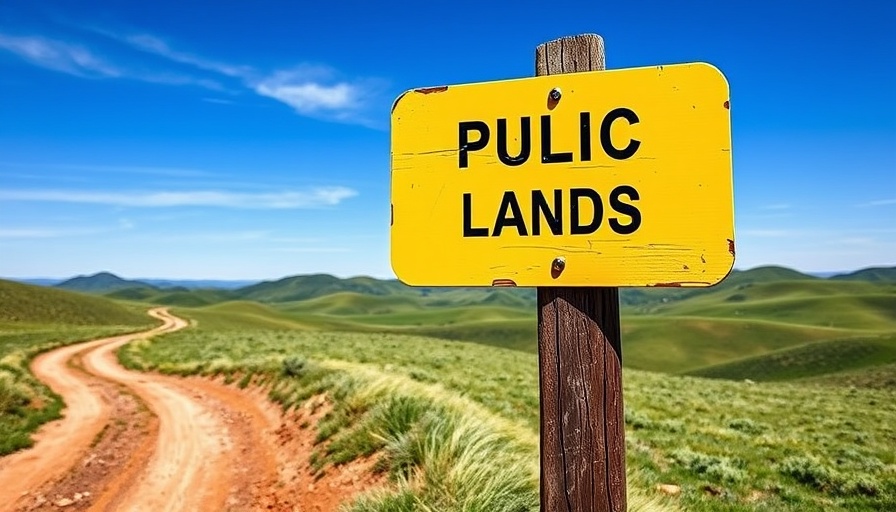
Congress Bypasses Local Compromises, Leaving Millions in Uncertainty
A recent vote by Congress has thrown a staggering 166 million acres of public land managed by the Bureau of Land Management (BLM) into a void of uncertainty. This decision, viewed as an uprooting of years of local collaboration and environmental stewardship, may significantly impact the health and wellness of communities across the MidSouth. Farmers, homeowners, and outdoor enthusiasts alike might face the consequences of disrupted management practices that have historically balanced economic interests and environmental preservation.
The Impact on Local Communities
For homeowners in the MidSouth, especially those who cherish nature as part of their home environment, the congressional shift away from established resource management plans raises pressing concerns. These plans were carefully crafted with input from local stakeholders, respecting the unique balance between development needs and environmental sustainability. Abrupt changes could not only jeopardize local ecosystems but also threaten the health of communities that rely on these lands for recreational activities, clean air, and water.
Why Public Lands Matter to Health and Wellness
Public lands contribute significantly to community health. Parks, forests, and open spaces offer residents opportunities for physical activity, relaxation, and connection to nature. Research has shown that access to green spaces can enhance mental well-being and promote healthier lifestyles. Should the management of these lands shift away from conservation to a more extractive model, communities could face increased pollution and diminishing recreational opportunities, leading to adverse health outcomes.
Voices of Local Residents
Many homeowners have publicly expressed their fears regarding these changes. Local farmers worry about soil conservation and water access, while families question the safety of nature walks and outdoor activities. “This land is our lifeblood,” shares one passionate supporter of the current management plans. “If Congress takes that away, we're not just losing open space; we’re losing our connection to nature's benefits.” Such sentiments echo throughout the MidSouth, highlighting the emotional weight of this legislative change.
The Future of Local Resource Management
So, what does the future hold for local resource management in the wake of these recent decisions? Experts foresee potential conflicts as federal mandates clash with local priorities. The challenge will be finding a common ground that honors community health while addressing the economic interests that come with land development.
Encouraging Community Activism and Resilience
As uncertainties loom, MidSouth residents are urged to stay engaged and informed. Local organizations committed to sustainability and environmental health are ramping up their efforts to empower citizens. Homeowners should consider participating in town halls, voicing their opinions, and advocating for resource management practices that prioritize health and environmental quality. Engaging in community action can be an empowering way to ensure that local voices are heard in legislative decision-making.
Your Role in Health and Environmental Advocacy
Understanding the implications of federal policies on local lands is essential for homeowners who prioritize health and well-being. Attend community meetings, educate neighbors about the potential impacts of legislation, and support local initiatives that promote sustainable living. By being proactive, you not only safeguard your local environment but also take effective steps towards ensuring a healthier future for your community.
Conclusion
The congressional decision to alter how public lands are managed represents a significant shift that resonates deeply with homeowners across the MidSouth. The ramifications of this change could affect personal health, communal well-being, and the integrity of local ecosystems. However, by fostering community spirit and political activism, residents can navigate these challenges and advocate for their needs and the environment's future. Now is the time to become informed and engaged in ensuring your community's health continues to thrive.
 Add Row
Add Row  Add
Add 



Write A Comment